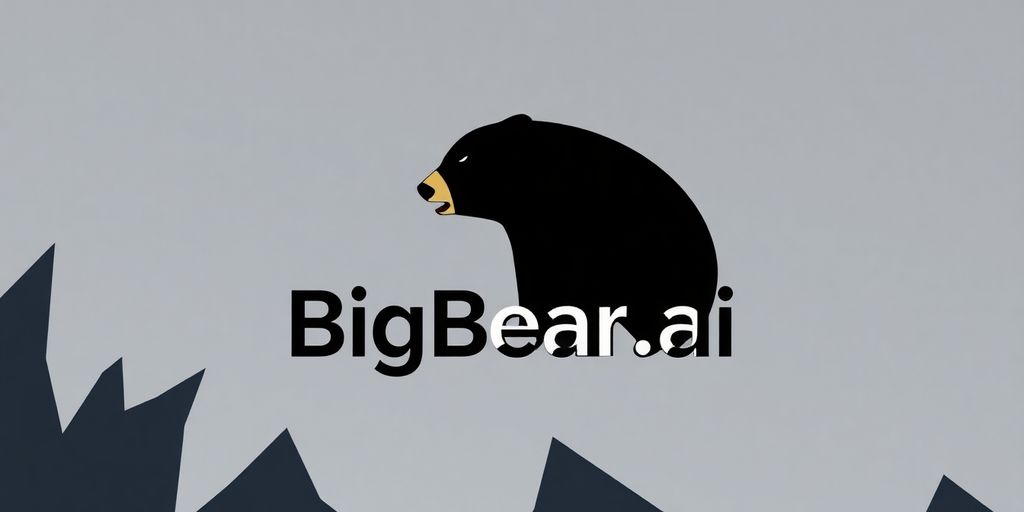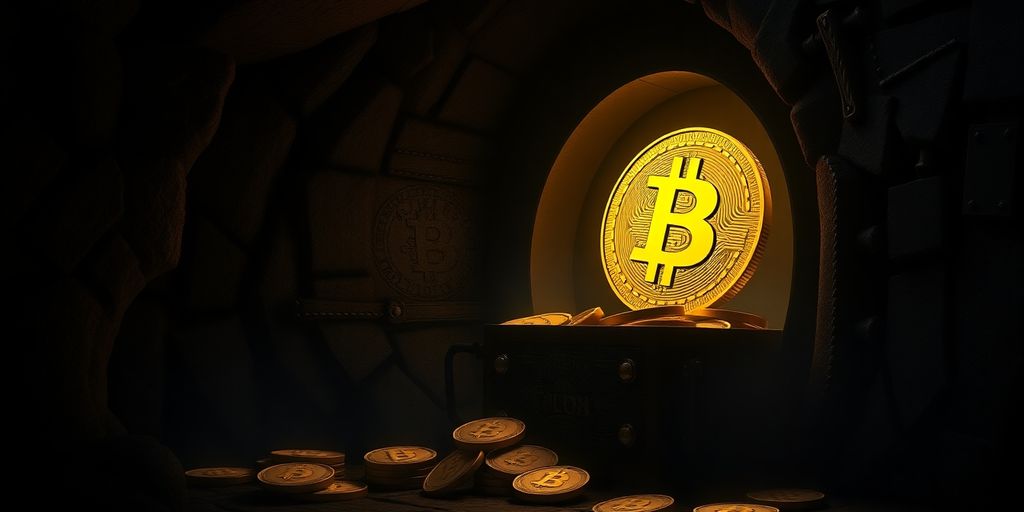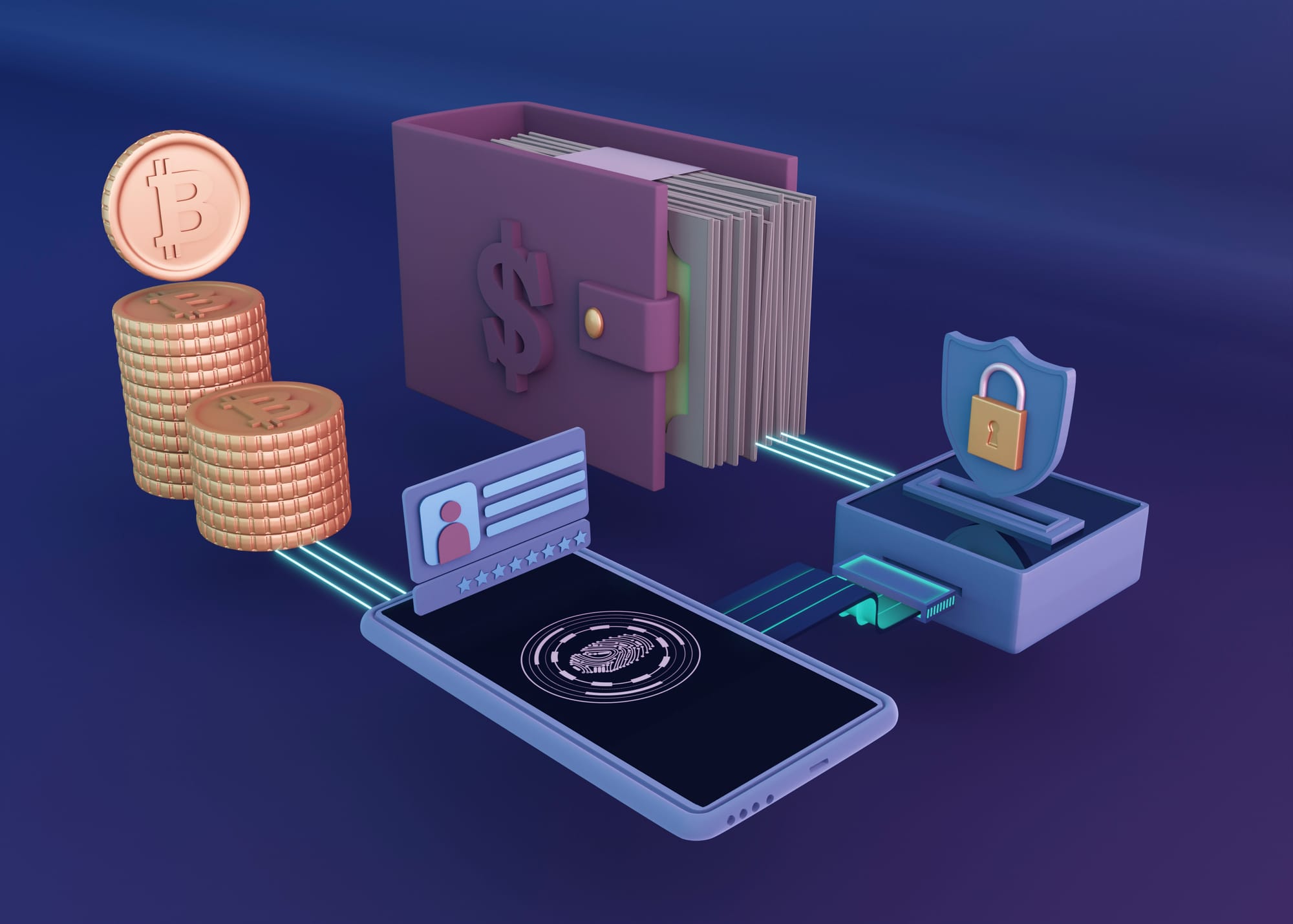What Is The Best Crypto Wallet 2025?
Picking the right crypto wallet can feel like a big deal, right? You want something safe, easy to use, and that actually holds all the coins you care about. It’s not just about stashing your digital cash; it’s about having control and security. We looked at a bunch of popular options to help you figure out which wallet crypto solution might be the best fit for you. Whether you're just starting out or you've been in the crypto game for a while, there's a wallet out there that can make managing your assets a lot simpler.
Key Takeaways
- Exodus is a solid all-around choice, especially if you have a variety of digital assets.
- MetaMask is a go-to for interacting with Web3 applications and the Ethereum ecosystem.
- Trust Wallet is a good mobile option that supports a wide range of coins and NFTs.
- Coinbase Wallet offers a user-friendly experience, integrating well with the Coinbase exchange.
- Hardware wallets like Ledger and Trezor provide the highest level of security for long-term storage.
Exodus

Exodus is a cryptocurrency wallet that aims to be user-friendly for everyone, from folks just starting out to those who have been in the crypto space for a while. It's available on desktop and mobile, which is pretty handy. The wallet is often praised for its clean design and how easy it is to get around. You can manage a lot of different digital assets with it, supporting over 100 blockchains, which means you're not limited to just a few coins.
One of the neat features is the built-in exchange, letting you swap one cryptocurrency for another without leaving the app. This can make things simpler if you're trading often. It also has integrations with hardware wallets like Trezor, adding an extra layer of security if you want it.
Here’s a quick look at some of its features:
- Broad Asset Support: Handles over 100 different blockchains and thousands of trading pairs.
- Built-in Swapping: Allows you to exchange cryptocurrencies directly within the wallet.
- Hardware Wallet Integration: Connects with Trezor devices for enhanced security.
- Cross-Platform Availability: Accessible on desktop (Windows, macOS, Linux) and mobile (iOS, Android).
While Exodus is generally well-regarded, some users have noted that it's closed-source software and doesn't offer two-factor authentication. Also, you don't have direct control over transaction fees, which can sometimes be a drawback. Still, for many, the convenience and ease of use make it a solid choice for managing your crypto. If you're looking to track wallet activity for trading insights, you might find tools like the BullX NEO wallet tracker helpful.
Exodus has a good reputation for being a reliable wallet that balances a simple interface with strong security. It's a good option if you want to manage a variety of digital assets without too much hassle. The company also provides chat and email support, which is a plus when you run into questions.
Exodus is a solid contender, especially if you value a good user experience and broad coin support. You can check out more about its features on their official website.
MetaMask
MetaMask is a really popular choice, especially if you're into the Ethereum ecosystem and decentralized applications, or dApps. It started out as a browser extension back in 2016 and has since grown into a go-to wallet for many people interacting with things like DeFi platforms and NFT marketplaces. It's a non-custodial wallet, which means you're in charge of your private keys, but that also means you absolutely need to keep your Secret Recovery Phrase safe. Losing that phrase means losing access to your funds.
One of the big draws for MetaMask is how well it connects with so many different dApps. You can manage your assets, swap tokens, and even interact with new projects pretty easily. It also supports a bunch of other blockchains that are compatible with the Ethereum Virtual Machine (EVM), so it's not just limited to Ethereum itself. You can even add custom networks if you need to connect to something a bit more niche.
The wallet's ability to integrate with various applications through its Snaps feature is a notable aspect, allowing for expanded functionality beyond basic transactions. This makes it quite adaptable for users who want to do more with their crypto.
While it's great for interacting with dApps, it's worth noting that MetaMask doesn't natively support cryptocurrencies like Bitcoin or Solana. If those are your main holdings, you might need another wallet. Also, setting up some of the network configurations can be a bit tricky for absolute beginners. However, they are working on making things easier, like integrating Web2 authentication methods for wallet recovery, which should help more people get involved in the decentralized web.
Here's a quick look at some of its features:
- dApp Integration: Works with thousands of decentralized applications.
- Non-Custodial: You control your private keys.
- Multi-Chain Support: Primarily EVM-compatible chains, with custom network options.
- Browser Extension & Mobile App: Available on multiple platforms.
It's a solid wallet for anyone serious about exploring the Ethereum-based decentralized world, but always remember to protect your recovery phrase. You can find more details about how to manage your assets securely by looking into strategies for trading Solana.
Remember, while MetaMask is generally secure, it's important to be aware of potential scams like rug pulls, where project developers disappear with investor funds. Always do your own research before investing in new projects. Protecting yourself from scams is a key part of staying safe in crypto.
Trust Wallet
Trust Wallet is a popular choice, especially if you're primarily using your phone for crypto. It's a non-custodial wallet, meaning you're in charge of your private keys, which is a big deal for security.
It supports a huge number of cryptocurrencies and blockchains – way more than many others out there. This makes it pretty flexible if you're into different types of digital assets. Plus, it has a built-in DApp browser, so you can connect to decentralized applications and NFTs right from the app. It's designed with mobile users in mind, offering a clean and simple interface that's easy to get around.
When it comes to security, Trust Wallet uses strong encryption and integrates with your phone's built-in security features. You can also set up PINs and use biometrics like fingerprint or face ID. They also have a system to flag risky transactions, which is a nice extra layer of protection. They really try to help users avoid scams and offer support when needed, which is good because sometimes things can get a bit confusing in the crypto world.
Trust Wallet is a solid option for everyday crypto management on the go. Its wide asset support and user-friendly mobile design make it accessible for many, though some advanced users might want more customization options.
One of the handy features is the ability to swap tokens directly within the wallet. This cuts out the need to send your crypto to an exchange just to trade it for something else. However, it's worth noting that customization for things like gas fees can be a bit limited compared to some other wallets. Also, while they offer support, it's not always live customer service, so you might have to wait a bit for a response if you run into an issue. Still, for a mobile-first experience, it's definitely worth checking out Trust Wallet.
Coinbase Wallet

Coinbase Wallet is a popular choice, especially if you're already familiar with the Coinbase exchange. It's a non-custodial wallet, meaning you hold your private keys, giving you direct control over your digital assets. This is a big deal because it means your crypto isn't held by a third party. You don't actually need a Coinbase account to use the wallet, but if you do have one, they integrate pretty smoothly.
What's good about it? Well, it supports a lot of different cryptocurrencies, including thousands of ERC-20 tokens and assets on EVM-compatible chains. You can also interact with decentralized applications (dApps) and buy or sell NFTs right from the wallet. It also plays nice with hardware wallets like Ledger, which is a plus for security.
Key Features:
- Self-custody: You control your private keys.
- Broad Asset Support: Handles thousands of cryptocurrencies and tokens.
- dApp and NFT Access: Browse and interact with the decentralized web.
- Hardware Wallet Compatibility: Works with devices like Ledger for added security.
- Customer Support: Offers various support channels, including live chat and phone.
While Coinbase Wallet offers a user-friendly experience and strong ties to the Coinbase ecosystem, some users might find its connection to a centralized entity a point of consideration. For those prioritizing absolute decentralization, this might be a factor.
It's also worth noting that Coinbase Wallet provides insurance for your crypto holdings, which is a benefit not all self-custody wallets offer. However, this is distinct from the full control you get with self-custody. The choice really comes down to whether you want that extra layer of insurance or complete ownership. If you're looking to explore decentralized exchanges, understanding how these wallets interact with platforms like Curve is also helpful for stablecoin optimization.
For those interested in automating trades or following successful traders, platforms like BullX NEO on Telegram can be integrated, allowing you to replicate strategies and receive real-time alerts, which can be a useful tool for managing your portfolio on the Solana network.
Ledger
Ledger is a big name when it comes to keeping your crypto safe offline. Think of it as a super secure digital vault for your digital money. They make these physical devices, called hardware wallets, that store your private keys – the secret codes that give you access to your crypto – completely offline. This is a big deal because it means hackers can't get to them through the internet.
Ledger offers a couple of main models, with the Ledger Nano X being a popular choice. It's got Bluetooth, which is handy for connecting to your phone or computer without a bunch of cables. You manage your crypto using their Ledger Live app, which lets you see your balances, send and receive coins, and even do things like staking. It supports a huge number of different cryptocurrencies, over 5,000 according to their site, so you're likely covered no matter what you're holding.
Here’s a quick look at what makes Ledger stand out:
- Offline Storage: Your private keys never touch the internet.
- Wide Coin Support: Handles thousands of different cryptocurrencies and tokens.
- Secure Element Chip: Uses a special chip, certified for security, to protect your keys.
- Ledger Live App: A user-friendly interface for managing your assets.
While Ledger devices are generally very secure, it's important to remember that the security of your crypto also depends on you keeping your recovery phrase safe and never sharing it with anyone. Losing that phrase can mean losing access to your funds permanently.
One thing to note is that Ledger's software is closed-source, which some users prefer to avoid. However, the company has a strong reputation for security, though they did have a data breach a few years back that affected customer information, not the devices themselves. For many, the peace of mind that comes with a dedicated hardware wallet like Ledger is well worth the price, especially when dealing with significant amounts of crypto. You can find out more about their devices on the Ledger website.
Feature | Ledger Nano X |
|---|---|
Connectivity | USB-C, Bluetooth |
Supported Coins | 5,500+ |
Mobile App | Yes (Ledger Live) |
Price (approx.) | $149 |
Security Certification | CC EAL5+ Secure Element Chip |
Trezor

Trezor is a well-regarded name in the hardware wallet space, known for its focus on security and user control. Developed by SatoshiLabs, Trezor was one of the first hardware wallets to hit the market, aiming to keep your private keys offline and away from potential online threats. This offline storage is the core of its security model.
Trezor offers a few different models, but they all share a common goal: to provide a secure place for your digital assets. The devices typically feature a small screen and physical buttons for confirming transactions directly on the hardware. This physical confirmation step is important because it means even if your computer is compromised, your crypto should still be safe. You interact with your Trezor wallet through software like Trezor Suite, which allows you to manage your coins, view your balance, and send or receive transactions. It's designed to work with a wide variety of cryptocurrencies, supporting thousands of different coins and tokens.
One thing to note about Trezor is its commitment to open-source principles. This means the software and hardware designs are publicly available for review, which many users see as a positive for transparency and security. However, unlike some competitors, Trezor wallets generally do not have Bluetooth connectivity. The company states this is a deliberate choice to minimize potential attack vectors. If you're looking for a straightforward, secure way to store your crypto offline, Trezor is definitely worth considering. You can find more information about their products on the Trezor website.
Trezor's approach prioritizes keeping your private keys completely isolated from your internet-connected devices. This separation is a key reason why hardware wallets are often recommended for storing significant amounts of cryptocurrency.
ZenGo
ZenGo stands out in the crypto wallet space with its focus on user-friendliness and a unique security approach. Instead of relying on traditional seed phrases, which can be a weak point for many users, ZenGo employs a technology called Multi-Party Computation (MPC). This method splits your private keys into multiple parts, with one part stored securely by ZenGo and another on your device. This setup means you don't have to worry about losing a physical seed phrase, and ZenGo offers a straightforward recovery process if you lose your phone or forget your password. It's a pretty neat way to handle security without making things overly complicated.
ZenGo supports a decent number of blockchains, including popular ones like Bitcoin and Ethereum, along with others like Dogecoin. While it might not cover as many obscure coins as some other wallets, it's a solid choice for most everyday crypto users. The wallet itself is free to use, which is always a plus when you're starting out or managing a diverse portfolio. Many users appreciate how easy it is to get started, especially if they're new to the world of digital assets. You can find out more about managing your crypto by looking into resources like BullX NEO trading bot.
Here's a quick look at what ZenGo offers:
- Security: Utilizes MPC technology, eliminating the need for seed phrase management.
- User Experience: Designed to be very intuitive and easy to use, even for beginners.
- Recovery: Offers a simplified wallet recovery process.
- Cost: The wallet is free to download and use.
Some users have noted that certain advanced features might require a subscription, and transaction times can sometimes be longer compared to other wallets. However, for those prioritizing ease of use and a secure, hassle-free recovery system, ZenGo is definitely worth considering. It's a good option if you're looking for a wallet that simplifies the often-complex world of crypto security, making it easier to manage your digital assets without the constant worry of losing a seed phrase. For those interested in the broader crypto market and risk management, understanding tools like meme coin strategies can also be beneficial.
Tangem

Tangem Wallet is a bit different from other crypto storage options out there. Instead of a traditional hardware device you plug in, Tangem uses NFC-enabled smart cards. Think of them like secure digital keys. You get a couple of these cards, and they hold your private keys, which is what actually controls your crypto. This setup means you don't have to worry about seed phrases, which can be a real headache to manage and keep safe.
Using Tangem is pretty straightforward. You download their mobile app, which is available for both iOS and Android, and then you just tap your Tangem card to your phone using NFC to connect. It supports a huge number of cryptocurrencies and blockchains, over 80 networks to be exact, so you can manage a lot of different digital assets with just a couple of cards. It's also built to be tough – dustproof, waterproof, and resistant to things like X-rays and extreme temperatures. Since it launched in 2021, Tangem has a solid track record with no reported hacks.
Here’s a quick look at what makes Tangem stand out:
- No Seed Phrase Hassle: Private keys are stored on the smart card itself, removing the need to write down and secure a lengthy seed phrase.
- Robust Security: The cards use EAL6+ CC certification, and the firmware is not updatable, which adds a layer of security against potential remote attacks.
- Wide Asset Support: You can store and manage thousands of different cryptocurrencies across many different blockchain networks.
- Durability: The cards are designed to withstand environmental factors like water and extreme temperatures.
One thing to keep in mind is that you do need a smartphone with NFC capabilities to use the Tangem wallet. There isn't a desktop version available, so if you prefer managing your crypto on a computer, this might not be the best fit. However, for those looking for a secure and simple way to store their digital assets without the usual complexities of seed phrases, Tangem offers a really interesting solution. It’s a good option if you’re looking for a straightforward way to secure your cryptocurrency wallet.
The Tangem Wallet's approach to security, by eliminating the traditional seed phrase and relying on secure smart cards, offers a unique user experience. This method aims to simplify self-custody for a broader audience, making it more accessible for those who might find managing seed phrases daunting. It’s a practical choice for users who prioritize ease of use alongside strong security measures for their digital assets.
Tangem cards start at around $54.90 for a two-card set. The wallet has a good Google rating, often around 4.8 stars, reflecting user satisfaction with its design and security. While it doesn't have a desktop app, its mobile-first approach is well-suited for many users today, especially those interested in exploring different cryptocurrency trading strategies on the go.
Phantom
Phantom Wallet started out as a go-to for Solana users, and it really made a name for itself with its clean look and how easily it connected with Solana's decentralized apps (dApps) and NFTs. It launched in 2021 and quickly became a favorite because it was simple to use and felt secure.
More recently, Phantom has broadened its horizons, adding support for Ethereum and Polygon. This makes it a more versatile option if you're dealing with assets across different blockchains. It's a non-custodial wallet, meaning you're in charge of your private keys, which is a big plus for many crypto users. You can send, receive, and store various digital assets, manage your NFTs, and even stake some of your holdings to earn rewards. Plus, it has a built-in swapper for trading tokens without leaving the wallet.
Phantom's expansion to include Ethereum and Polygon makes it a strong contender for users who want a single wallet to manage assets across multiple popular networks. While it's praised for its user-friendly interface, some users have noted that its performance on Ethereum and Polygon isn't quite as polished as its Solana features. There have also been occasional reports of token values not displaying accurately during periods of high market volatility.
Here's a quick look at what Phantom offers:
- Multi-chain Support: Originally Solana-focused, now supports Ethereum, Polygon, Base, and Sui.
- User Experience: Known for its intuitive design, making it accessible for both new and experienced users.
- NFT Management: Good capabilities for storing and viewing your non-fungible tokens.
- Staking: Allows you to stake certain assets directly from the wallet to earn rewards.
- Built-in Swapper: Facilitates easy token exchanges within the wallet interface.
Phantom is available as a browser extension for Chrome, Brave, Firefox, and Edge, as well as a mobile app for iOS and Android. It's a solid choice if you're heavily invested in the Solana ecosystem or looking for a user-friendly multi-chain wallet, especially if you're interested in exploring dApps on these networks. For those looking for tools to help identify trending tokens, platforms like BullX NEO offer advanced analytics.
While Phantom's expansion is a positive step, it's worth noting that its features for Ethereum and Polygon are still developing compared to its core Solana functionality. Keep an eye on updates as they continue to build out these capabilities.
BlueWallet
BlueWallet is a pretty solid choice if you're mainly focused on Bitcoin and want a mobile-first experience. It's known for being user-friendly, which is a big plus when you're just starting out or don't want to get bogged down in super technical stuff. You can set up different types of wallets, like standard HD wallets or even Lightning Network wallets for faster, cheaper transactions. It also supports multi-signature and watch-only wallets, giving you some flexibility in how you manage your funds.
One of the things that stands out is its focus on security, especially for Bitcoin. They put a lot of effort into making sure your private keys are handled safely. It's a non-custodial wallet, meaning you're in charge of your own keys, which is generally preferred by many in the crypto space.
BlueWallet offers features like push notifications so you don't miss important activity on your wallet. It also allows for things like batch transactions, which can be handy.
While BlueWallet is great for Bitcoin, its support for other cryptocurrencies isn't as broad as some other wallets out there. If you're looking to hold a wide variety of altcoins, you might need to consider a different option or use BlueWallet alongside another wallet.
It's a good option for those who value simplicity and security, particularly for their Bitcoin holdings. You can check out more about its safety features on web pages if you want to dig deeper into the specifics.
Looking for a way to manage your digital money? BlueWallet is a great option for keeping your crypto safe and easy to access. It's a simple tool that helps you control your funds. Want to learn more about how it works and how it can help you? Visit our website today to discover all the benefits!
Finding Your Fit
So, picking the right crypto wallet really comes down to what you need. If you're just starting out, something simple like Zengo or Coinbase Wallet might be best. For managing a lot of different coins, Exodus is a solid choice. And if you're serious about security, especially for larger amounts, a hardware wallet like Ledger or Trezor is the way to go. It’s not a one-size-fits-all situation, so think about how you plan to use your crypto and choose a wallet that makes sense for you. Always remember to keep your private keys safe, no matter which wallet you end up using.
Frequently Asked Questions
What exactly is a crypto wallet and why do I need one?
Think of a crypto wallet as a special digital key that lets you control your online money, like Bitcoin or Ethereum. It doesn't hold your actual coins, but rather the secret codes (private keys) that prove you own them and allow you to send or receive them. Without a wallet, you can't access or manage your digital assets.
What's the difference between a hot wallet and a cold wallet?
A 'hot' wallet is connected to the internet, like an app on your phone or a browser extension. They're super convenient for quick trades. A 'cold' wallet, like a special USB device, is kept offline. This makes it much safer from hackers but a bit less convenient for everyday use. It's like keeping your everyday cash in your pocket versus storing your life savings in a bank vault.
What does 'non-custodial' mean for a crypto wallet?
A 'non-custodial' wallet means YOU are in charge of your private keys and therefore your crypto. You don't have to trust a company to keep your money safe. This gives you full control, but it also means you're responsible for keeping those keys safe. If you lose them, you could lose your crypto forever, so it's super important to back them up properly.
How do I pick the best crypto wallet for me?
The best wallet really depends on what you need! If you're just starting, an easy-to-use app might be good. If you plan to trade often, you'll want something fast. For holding lots of crypto long-term, a secure cold wallet is usually recommended. Also, check if it supports the specific types of digital money you want to use.
Are there wallets that are better for specific cryptocurrencies?
Yes, absolutely! Some wallets are built to be really good with specific digital currencies. For example, MetaMask is often a top choice for Ethereum and related tokens because it's designed specifically for them. Similarly, some wallets focus on Bitcoin. If you're only planning to use one type of crypto, a specialized wallet might offer the best features.
What are some important things to look for when choosing a wallet?
When picking a wallet, always check its security features, like if it offers extra protection like two-factor authentication. Make sure it's easy for you to understand and use, especially if you're new to crypto. It's also smart to see if it supports all the different digital assets you want to store and if it has good reviews from other users.
More Crypto News:












